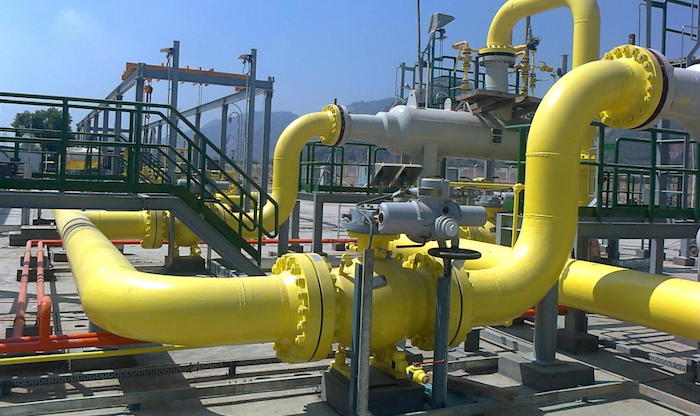Nigeria is positioning itself to unlock as much as $20 billion in new investments from 70 priority gas projects over the next few years, as Africa’s biggest economy accelerates efforts to turn its vast natural gas reserves into a springboard for industrialisation, job creation, and energy security.
The projects, drawn from a pool of more than 200 reviewed by the Decade of Gas Secretariat between July and August, represent the most viable opportunities to propel Nigeria toward its 2030 goal of becoming a gas-powered economy, according to Farouk Ahmed, chief executive of the Nigerian Midstream and Downstream Petroleum Regulatory Authority (NMDPRA).
“These identified projects represent near-term opportunities with the potential to attract over $20 billion in new investment, create tens of thousands of jobs, and catalyse industrial activity across the country,” Ahmed said in Lagos on Wednesday at the opening of the Gas Utilisation Unlock Validation Series convened under the government’s Decade of Gas initiative.
The 70 projects, spread across six key demand clusters, power generation, fertiliser, petrochemicals, industrial feedstock, compressed and liquefied petroleum gas (CNG/LPG), and gas export, have a combined potential gas demand of about 15 billion standard cubic feet per day (bscfd).
They were selected from a broader database of 215 proposed utilisation projects, which together account for an estimated 30 bscfd of demand, Ahmed said.
The NMDPRA chief noted that a three-week validation process, which began this week, will rigorously test the credibility of these projects by matching supply with demand, establishing pricing mechanisms, and identifying infrastructure and policy enablers needed to accelerate implementation.
“This validation series is not only an audit of projects; it is also a way to speed up their implementation,” Ahmed told industry leaders. “Each project team will work closely with the NMDPRA and the Decade of Gas Secretariat to validate technical, commercial, and financial assumptions, find quick-win solutions to remove bottlenecks, and assign clear responsibilities and timelines.”
Launched in 2021, the Decade of Gas Initiative is Nigeria’s flagship energy transition agenda aimed at harnessing the country’s more than 200 trillion cubic feet of proven natural gas reserves. The initiative focuses on four pillars, supply, infrastructure, pricing, and utilisation, with an overarching goal of positioning gas as the primary fuel for the nation’s industrial growth and export diversification.
Nigeria currently struggles with under-utilisation of its gas potential despite holding the largest reserves in Africa. Industry bottlenecks, including infrastructure deficits, regulatory overlaps and market uncertainties, have constrained investment and limited gas-to-power, manufacturing, and petrochemical development.
Ahmed acknowledged these structural challenges but said the current review process was designed to ‘unlock the final drivers’ required to realise the program’s strategic objectives.
“Through our coordinated actions, Nigeria is emerging as a major and respected hub for energy supply to Africa and the globe,” he said. “We are building a regional hub for refined products trading and a natural gas exchange platform.”
The NMDPRA, created under the Petroleum Industry Act (PIA) to regulate midstream and downstream operations. It moves to enhance the investment climate by reforming key aspects of gas market regulation.
